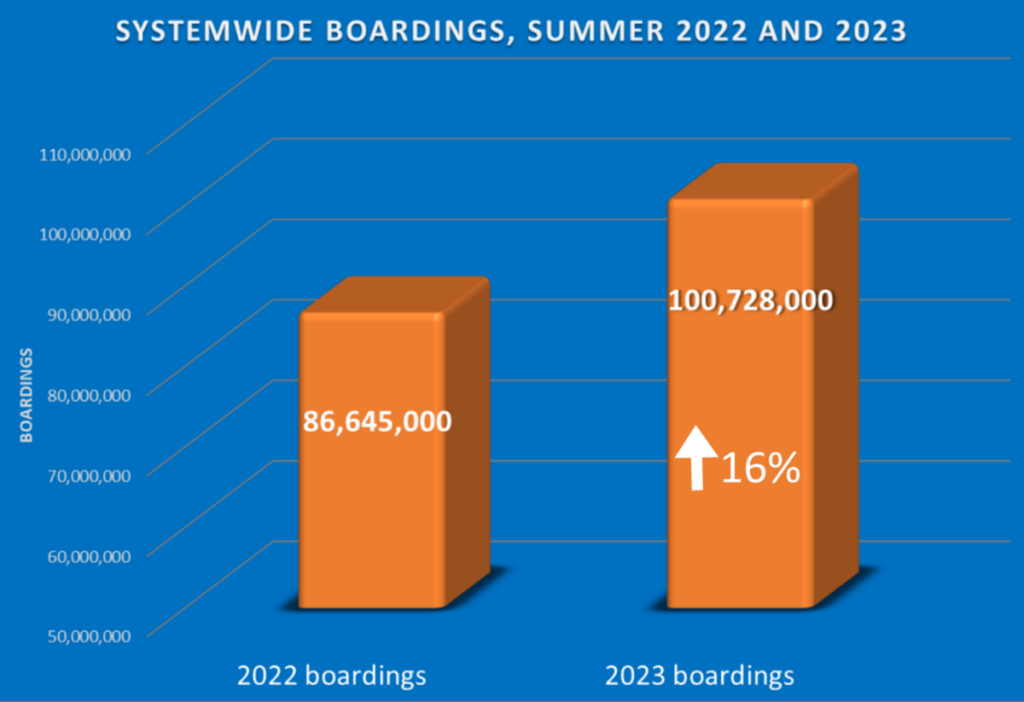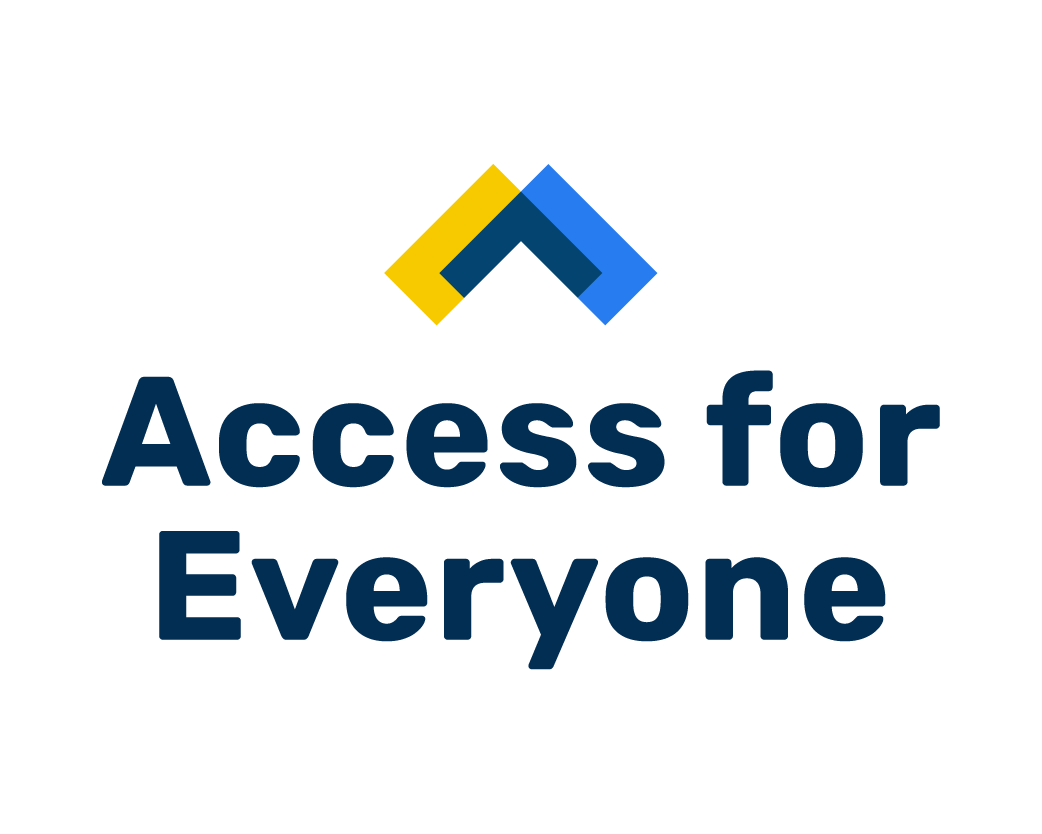TransLink Mayors’ Council warns housing targets at risk without federal and provincial commitments to transit expansion
September 19, 2023
New data shows Metro Vancouver transit system already struggling to meet demand with record population growth coming
(Vancouver, B.C.) – Today at the Union of BC Municipalities (UBCM) Annual Convention, the Mayors’ Council on Regional Transportation warned that time is running out for the provincial and federal governments to commit new funding for public transit expansion amid surging ridership in the Metro Vancouver region.
With all levels of government working together to accelerate the development of affordable housing, the Mayors’ Council is urging the provincial and federal governments to commit funding for the Access for Everyone transit expansion plan, which will enhance access to new affordable housing developments throughout the region and better serve existing communities where transit ridership is already overcrowded. The plan will double bus service over the next decade, build nine new Bus Rapid Transit lines and increase funding for active transportation infrastructure by a factor of 10.
New data from TransLink shows overcrowding on its system is rapidly worsening. By 2025, almost 4 in 10 rush hour bus trips will be severely overcrowded, leaving tens of thousands of commuters every day watching full buses pass them. Metro Vancouver leads all major North American cities in post-pandemic rapid transit ridership recovery. Transit ridership in Surrey and Langley is at 120 per cent of pre-COVID levels with some routes in these fast-growing communities seeing ridership more than double over the past 4 years.
Transit service was frozen at 2019 levels due to the pandemic, while since then the region’s population has grown by more 200,000, with 50,000 more people arriving every year. The region’s transit service levels per capita are now back to 2016 levels and this metric will continue to decline given rapid population growth, unless new service is urgently added.
The TransLink Mayors’ Council is in the process of finalizing the projects and initiatives to be included in the first phase of TransLink’s new Access for Everyone plan. The plan will need funding commitments no later than June 2024 to stay on track to begin expanding transit service in late 2024 in line with population growth and to support new housing targets.
“The region’s population is growing at a record pace while our housing affordability crisis deepens,” said Mayor Brad West, Chair of TransLink’s Mayors’ Council. “As mayors, we are concerned that any delays in expanding transit service will make it very difficult for city councils and builders to expand housing in our communities as quickly as is needed. The window for the provincial and federal government to take action is getting very small.”
“Essential infrastructure like public transit needs to keep up with population growth so we can ensure new housing is accessible and residents have affordable transportation options,” said Mayor Mike Hurley, Vice Chair of the Mayors’ Council. “Time is running out. We’re asking the federal and provincial governments to commit to funding their share of the Access for Everyone plan, starting in 2024.”
A public opinion poll from August 2023 shows that four-in-five (79 per cent) of Metro Vancouver residents agree it is crucial that governments are proactive in building transit in response to population growth. The data further shows that 73 per cent of residents support the Access for Everyone plan and believe it will have a positive impact on them personally.
“The public expects regional leaders to work together with their provincial and federal counterparts to come up with solutions to make life better here,” said Ken Sim, Mayor of Vancouver. “Delivering new transit service next year is our shared priority as mayors, and we need our senior government partners at the table to make it happen.”
“TransLink is leading North America in ridership recovery,” said Kevin Quinn, CEO of TransLink. “The Access for Everyone plan will support this strong growth, while tackling issues of affordability and supporting provincial and federal climate goals. By investing in better bus service and cost-effective rapid transit technologies, better roads, and active transportation, we can provide people with more options to move around this region.”
“Municipalities are leading the way in Canada’s response to the housing crisis,” said Scott Pearce, president of the Federation of Canadian Municipalities. “Local leaders want greater collaboration across all orders of government to ensure municipalities have not only the resources to meet new housing and record-setting population growth demands, but the essential infrastructure – like ambitious public transit – that ensures communities can sustain the kind of growth we anticipate. Predictable and stable investments in infrastructure are essential to that goal.”
The public opinion survey was conducted in August 2023 using an online panel. Details on poll results and methodology are available on the Mayors’ Council website.
About the Mayors’ Council on Regional Transportation
The Mayors’ Council is the collective voice of Metro Vancouver residents on transit and transportation. Our members include representatives from each of the 21 municipalities in TransLink’s service area, as well as Electoral Area ‘A’ and the Tsawwassen First Nation. It is responsible for approving TransLink’s transportation plans, identifying local funding and negotiating with other levels of government to make those plans a reality.
TransLink Ridership Backgrounder
September 19, 2023
Rapid ridership growth
TransLink is leading all major transit agencies in Canada and the US in ridership recovery with ridership continuing to grow. This growth has created new challenges, including overcrowding. The summer of 2023 saw 14 million more boardings than the summer of 2022, a 16 per cent increase.

Boardings: Summer 2022 and Summer 2023 by mode
| Mode | 2022 boardings | 2023 boardings | Growth |
| Bus | 53,332,000 | 61,667,000 | +16% |
| SkyTrain | 31,523,000 | 36,898,000 | +17% |
| SeaBus | 1,265,000 | 1,488,000 | +18% |
| West Coast Express | 240,000 | 339,000 | +41% |
| HandyDART | 284,000 | 337,000 | +19% |
| Systemwide | 86,645,000 | 100,728,000 | +16% |
Worsening overcrowding
TransLink is seeing overcrowding in some areas similar to, or worse than, pre-pandemic levels. Without additional investments into transit services, TransLink forecasts that by 2025, overcrowding in the Southeast Subregion will be six times more than it is currently and five times more in Vancouver (see below chart).

Route-Specific Ridership (Summer 2023)
- Ridership on Route 323 (Surrey Central–Newton Exchange) has grown by 70 per cent over pre-pandemic levels.
- 6,000 more boardings on an average weekday compared to pre-pandemic.
- One out of every three buses are now overcrowded on this route.
- Ridership on Route310 (Scottsdale-Ladner) has more than doubled, having grown by 140 per cent over pre-pandemic levels.
- Over 1,000 more boardings occur on this route on an average weekday compared to pre-pandemic.
- Ridership on Route 531(White Rock Centre–Willowbrook) has grown by 60 per cent over pre-pandemic levels.
- There are 1,300 more boardings on this route on an average weekday compared to pre-pandemic.
Frozen transit service levels and record-setting population growth
- Since the onset of the pandemic, transit service has remained frozen at 2019 levels, while the region’s population between 2019 and 2024 will have grown by 200,000.
- Transit service per capita is now back to 2016 levels and will continue to decline as the population continues to grow until new service is added.
